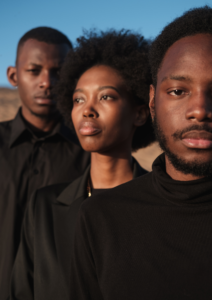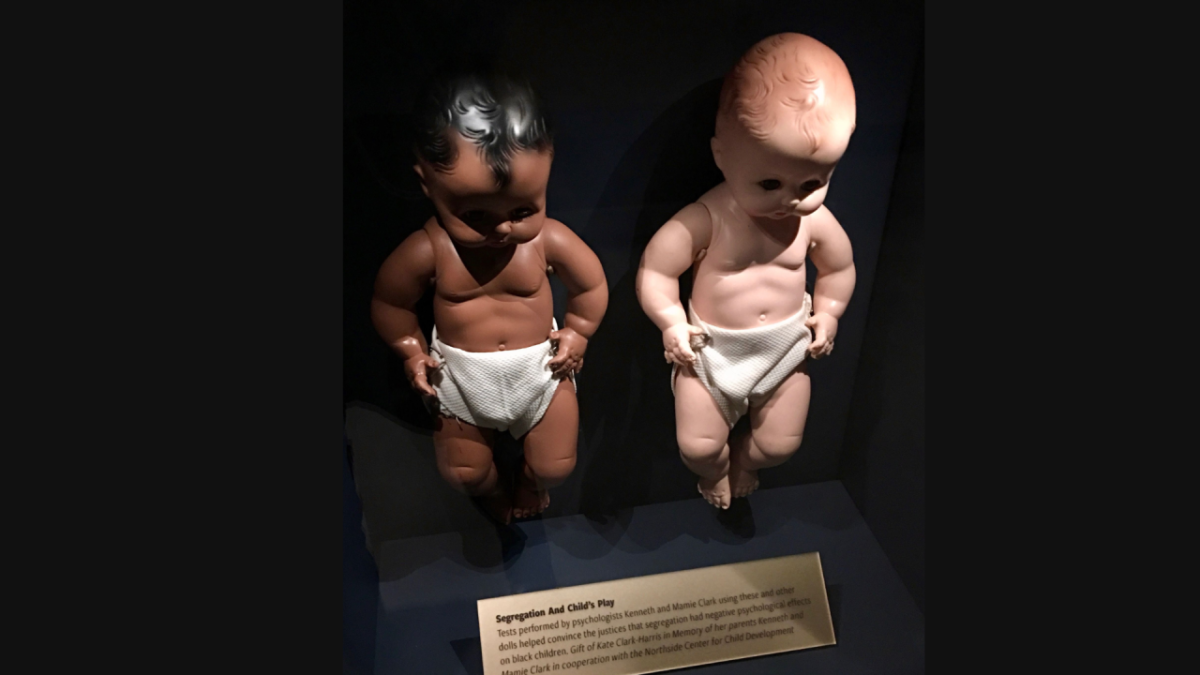By: Sarai Murdock
Racism is the root of many different forms of discrimination such as colorism, texturism, featurism, and intersectional issues that can include sexism and homophobia. These forms of oppression can cause racist biases to be internalized by the body, causing prejudices to be projected both internally and sometimes externally.
Sociologist Karen D. Pyke defines Internalized racism as the “internalization of racial oppression”. “It is a product of systems that were created for people to stay marginalized and the only way to do that is by having people in their head think that racism is okay,” says 24-year-old educator/activist/model Emmanuel Harvey. “It’s one thing for the organizations and businesses and government to be racist, but in order for it to maintain, we have to put that within the minds of the people for them to think that’s normal.”
The Media and its portrayal of beauty standards have a huge impact on self-esteem and identity. One issue we see in the media is the push of Eurocentric beauty standards such as straight hair and light skin. “Anyone who says representation doesn’t matter is speaking from a place of privilege where they never had to consider representation,” says 18-year-old college student, Heaven Walker. “I remember I would see white girls my age on YouTube and I would get so upset because it’s like why couldn’t I look like that? And I only felt that way because I only saw people who looked a certain way getting praised for their looks and I think that it really ruins the self-esteem of little black girls and we see a lot of those self-esteem issues manifesting in adult women now.”
For some people, when they are taught to have negative biases about themselves they will then project it onto other people. 24-year-old podcast host, Kayla Moore, went to a predominantly black middle school and was teased a lot for her physical features. “I used to cry so, so, bad, and then I had braces on top of that so I got teased about my lips until the fifth grade,” she says. “Words hurt especially as a kid.” 22-year-old fashion influencer, Jamaun Wilson agrees. As a child, he was called a variety of colorist names by the other black students in his school such as “monkey” and “burnt biscuit.”
Another issue in Media is the push of entertainment that promotes negative ideas about the way that black people behave. “I think we need to stop glorifying the worst of our culture. That’s the thing that seems to get projected upon mainstream media” says 22-year-old golfer, Desmond Norris. Wilson feels the same and blames a lot of reality shows, such as Baddies, that promote violence between mainly black women.
Norris talked about how growing up a lot of his black peers had a stereotypical idea of what a black man was supposed to act like and be into. “ In my youth, I didn’t have a lot of the same interest that others did, they would often use my skin shade as a code to my proximity to whiteness,” he says. Traylon Evans, a 21-year-old fashion influencer, agrees. “Were all not the same, were all not gonna be the same, were not all gonna operate the same. Yes, there is a majority that moves differently than others, but it’s all individualism.” Both of them believe that we as a community need to let go of negative stereotypes that are used to categorize black people.
One thing all of these contributions have in common is their origin. The racist experiences African Americans have gone through for centuries play a big role in this conversation. According to the National Library of Medicine, the effects of slavery have been proven to have real and serious effects on the black community and can show up in a plethora of ways such as:

Vacant Esteem
Marked Propensity for Anger and Violence
Racist Socialization and (Internalized) Racism
And Structural Racism
This comes from Post Traumatic Slave Syndrome (PTSS), a theory developed by Dr. Joy DeGruy. “PTSS is a condition that exists as a consequence of multigenerational oppression of Africans and their descendants resulting from centuries of chattel slavery.”
24-year-old model, DaSha Taylor Wallace, feels that a lot of American and black issues originate from white supremacy and PTSS. “Even when slavery was ended black people were still going through segregation and civil rights, a lot of them didn’t even know that slavery ended. It’s gonna have a generational impact when people are not getting the therapy, they’re not getting the help that they need and you’re just having trauma built on top of trauma.”
24-year-old educator and poet, Angel Arnold, resonates with the effect that racism can have on your self-esteem. After having multiple encounters with the police when she first started driving, it began to impact how she viewed herself internally. “When I would get pulled over they would often accuse me of stealing the car that I had, they would just question so many times if my car was my car because it was such a nice car and they would make comments subtly about my skin,” she says. “It makes me just feel like ‘Oh if I was a different skin color I wouldn’t have to worry about this’.” This made her feel insecure.
As a community, we can combat internalized racism through:
Accountability.
“Some people just gradually get it but I think that education is important and I think that we have to be willing to call people out on their BS,” says Emmanuel Harvey.
Education
“I feel like we need to open up more programs,” says Kayla Moore. “It’s nowhere for the kids to go or to really learn about themselves or to really express themselves.” Desmond Norris believes that this can also be done at home. “You know where I learned a lot of black history? On my grandmother’s lap.” He encourages people to ask their older family members questions about race and their experiences. “ Install critical thinking in your children along with teaching them history, cause I think they go hand in hand.”
Affirmations and Acceptance
“ We’re so often hard on ourselves, due to others being hard on us and then were put on a strain due to our community as well, and the love is lost within that so I think love is something that needs to be learned and taught in order for us to move past that” says Traylon Evans.
Unity
Angel Arnold strongly urges black people to find more communities with people who look like them and have similar interests and hobbies. “Last year I got into poetry and I have never been surrounded by so many people that look like me and it’s been one of the most beautiful experiences because I’ve never felt so loved and I’ve never felt so seen.”
Sarai Murdock, born in New York and raised in Cleveland, is a local journalist, multi-disciplinary artist, and the young author of Bully Free Zone: How to Stand Up for Yourself.




